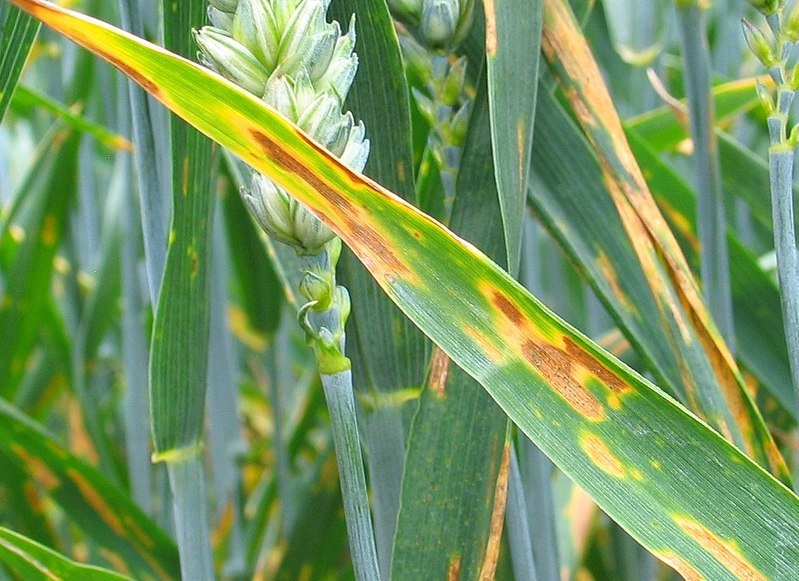Global crop yields of wheat and corn are starting to decline, and the latest report from the Intergovernmental Panel on Climate Change (IPCC) suggests things are only going to get worse.
Last year I looked at previous research into what climate change might mean for global crop yields and found that overall crop yields would remain stable but regional declines could prove devastating for certain parts of the world. The definitive new report from the IPCC finds that actually a temperature rise of just 1°C will have negative impacts on the global yields of wheat, rice and maize, the three major crop plants. Food prices could increase by as much as 84% by 2050, with countries in the tropics being much more badly affected than northern Europe and North America.
All over the world, research is underway to find sustainable ways to feed the growing population. Scientists within the Cabot Institute’s Food Security research theme are working on a range of problems that should help us manage the threat that climate change presents.
Improving crop breeding
The average increase in yields of the world’s most important crops is slowing down, which means that supply is not keeping up with demand. Professor Keith Edwards and Dr. Gary Barker are leading UK research into wheat genomes, developing molecular markers linked to economically important traits. These markers are often Single Nucleotide Polymorphisms (SNPs), which are single letter differences in the DNA code. It’s possible to find SNPs linked to areas of the genome associated with disease resistance or increased yield, allowing breeders to rapidly check whether plants have the traits they are looking for.
Wheat is a vital crop for UK agriculture as well as global food security.
Water use in plants
Climate change means that many parts of the world will face extreme weather events like droughts. Clean, fresh water is already an increasingly valuable resource and is predicted to be a major source of global conflict in the future.
Plants produce microscopic pores known as stomata on their leaves and stems, which open to take in carbon dioxide for photosynthesis but close in drought conditions to prevent excess water loss from the plant. Professor Alistair Hetherington’s group looks at the environmental conditions that affect stomatal formation and function, which will help to determine how droughts or higher carbon dioxide levels might affect crop productivity in the future and how we might enhance their water use efficiency.
Professor Claire Grierson’s group are working on root development, another important factor in managing how plants use water. Plants produce elongated root hairs which extend out into the substrate, increasing the root surface area in order to absorb more water and nutrients. If we can understand how root hairs are produced, we may be able to breed plants with even more efficient roots, able to extract enough water from nearly-dry soil in periods of low rainfall.
Each root hair is a single elongated cell that hugely increases a plant’s ability to take up water.
Preventing disease
 |
| Mycosphaerella graminicola is a wheat pathogen that greatly reduces yield, posing the biggest risk to wheat production worldwide. |
A particular concern of climate change is that diseases may spread to new areas or be more destructive than they used to be. Professor Gary Foster and Dr. Andy Bailey are leading research into a variety of fungal and viral plant pathogens, which are responsible for devastating crop yields around the world. They use new molecular techniques to determine exactly how diseases begin and what treatments are effective against them, information that will be vital as plant disease patterns change across the world.
Crop pollination
It is still unclear whether climate change is affecting bees, however some research suggests that flowers requiring pollination are getting out of sync with bees and other pollinators. This might not be a problem for wind-pollinated crops like maize and barley, or self-pollinators like wheat and rice, however most fruits and oil crops rely on pollinators to transfer pollen from plant to plant. Dr. Heather Whitney researches the interaction between plants and their pollinators, particularly focussing on how petal structure, glossiness and iridescence can attract foraging bees.
Plants in a warmer world
As the planet warms, the IPCC has shown that there will be an overall decrease in crop productivity. Climate change has had an overall negative impact on crops in the past 10 years, with extreme droughts and flooding leading to rapid price spikes, especially in wheat. Dr. Kerry Franklin is investigating the interaction between light and temperature responses in plants. High temperatures induce a similar reaction in plants to that of shade; plants elongate, bend their leaves upwards and flower early, which is likely to reduce their overall yield. We need to understand the benefits and costs of plant responses to temperature, and look for alternative growing approaches to maintain and hopefully even increase crop yields in a warmer world.

